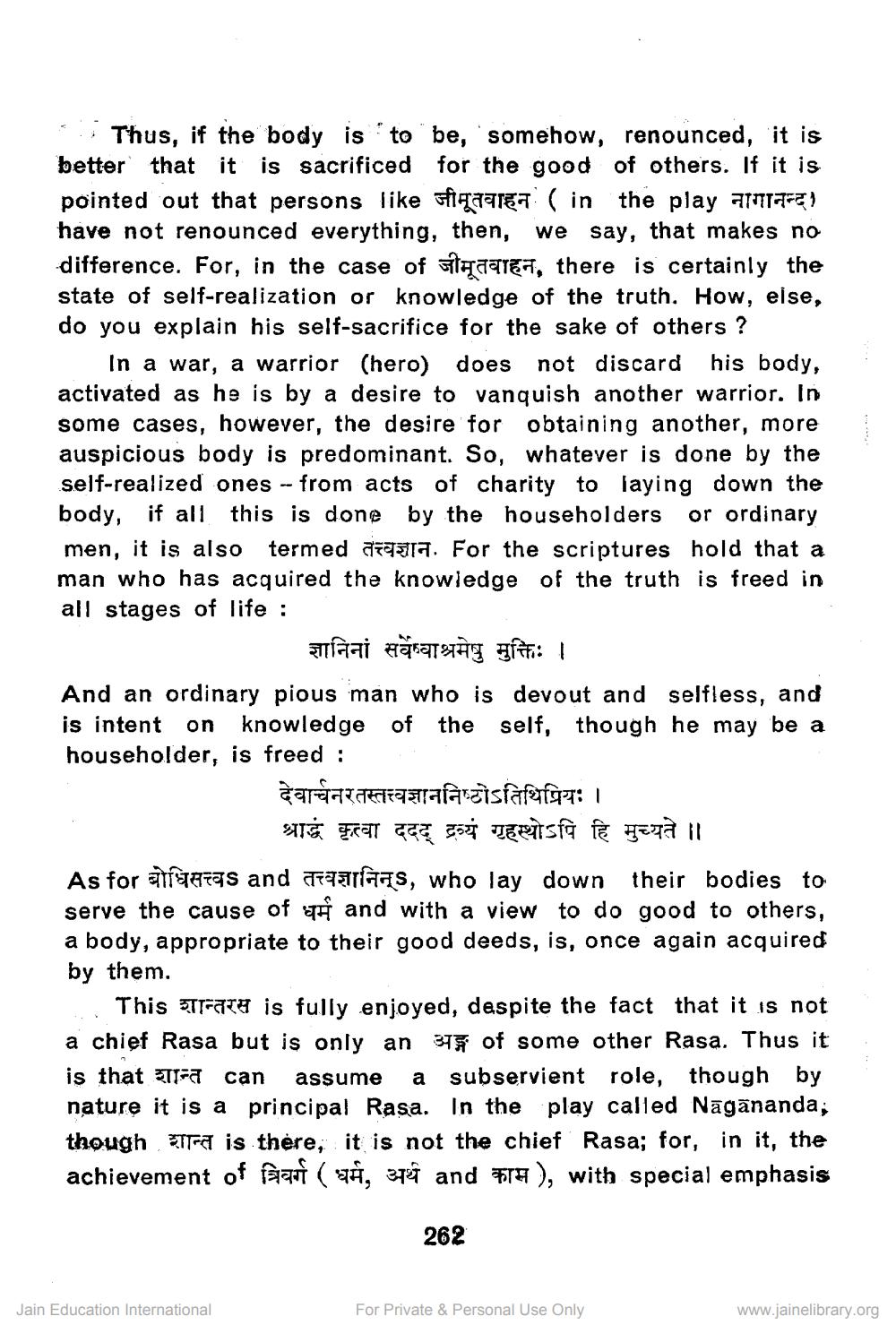________________
Thus, if the body is to be, somehow, renounced, it is better that it is sacrificed for the good of others. If it is pointed out that persons like जीमूतवाहन ( in the play नागानन्द। have not renounced everything, then, we say, that makes no difference. For, in the case of Haaren, there is certainly the state of self-realization or knowledge of the truth. How, else, do you explain his self-sacrifice for the sake of others ?
In a war, a warrior (hero) does not discard his body, activated as he is by a desire to vanquish another warrior. In some cases, however, the desire for obtaining another, more auspicious body is predominant. So, whatever is done by the self-realized ones -- from acts of charity to laying down the body, if all this is done by the householders or ordinary men, it is also termed 79517. For the scriptures hold that a man who has acquired the knowledge of the truth is freed in all stages of life :
ज्ञानिनां सर्वेष्वाश्रमेषु मुक्तिः । And an ordinary pious man who is devout and selfless, and is intent on knowledge of the self, though he may be a householder, is freed:
देवार्चनरतस्तत्त्वज्ञाननिष्ठोऽतिथिप्रियः ।
श्राद्धं कृत्वा ददद् द्रव्यं गृहस्थोऽपि हि मुच्यते ॥ As for बोधिसत्त्वs and तत्त्वज्ञानिन्s, who lay down their bodies to serve the cause of th and with a view to do good to others, a body, appropriate to their good deeds, is, once again acquired by them.
This Trate is fully enjoyed, despite the fact that it is not a chief Rasa but is only an 375 of some other Rasa. Thus it is that I can assume a subservient role, though by nature it is a principal Rasa. In the play called Nāgānanda, though Trc is there, it is not the chief Rasa; for, in it, the achievement of त्रिवर्ग (धर्म, अर्थ and काम), with special emphasis
262
Jain Education International
For Private & Personal Use Only
www.jainelibrary.org




